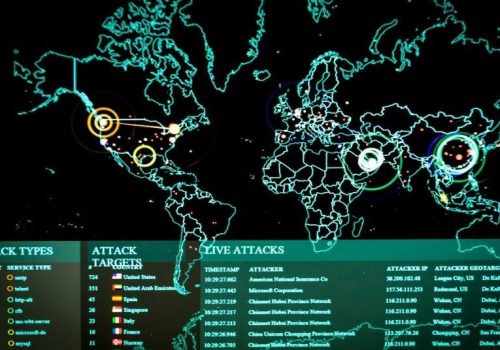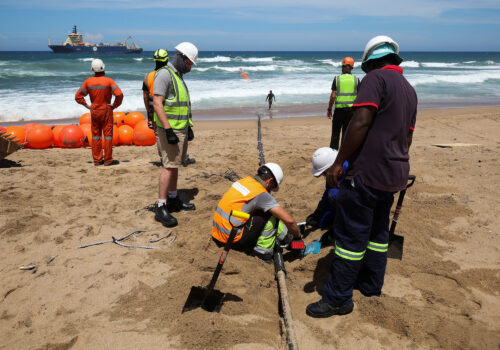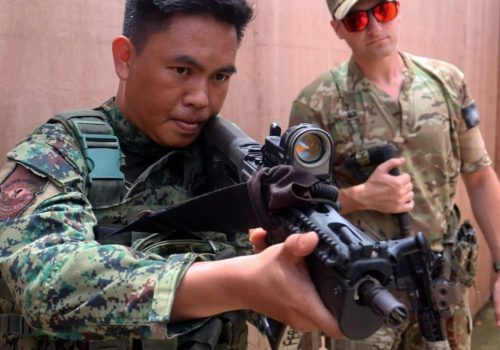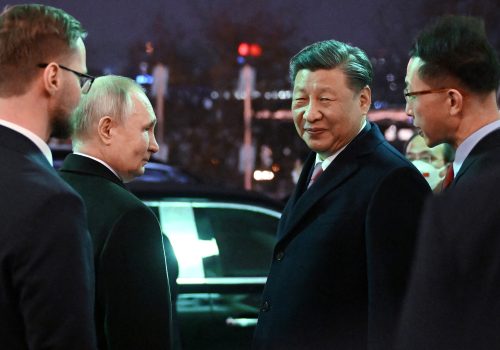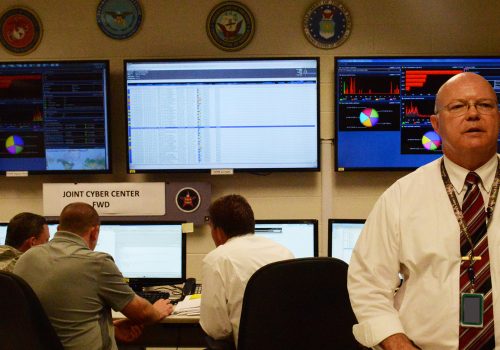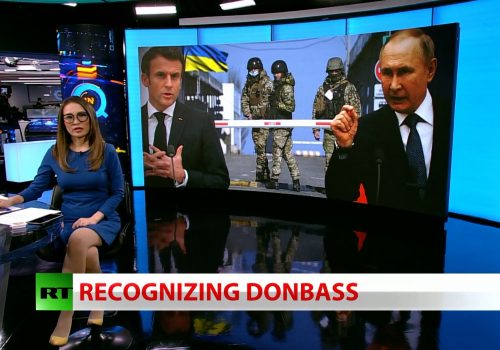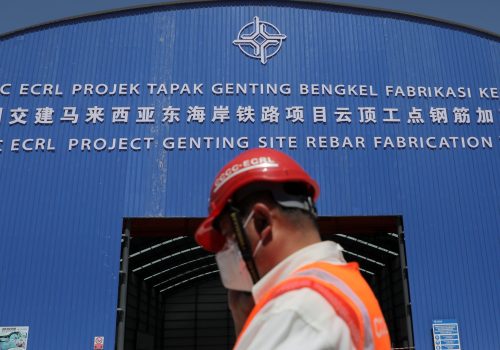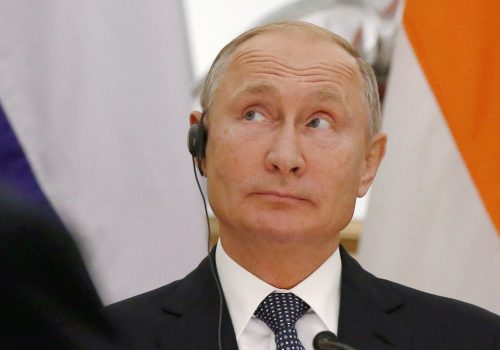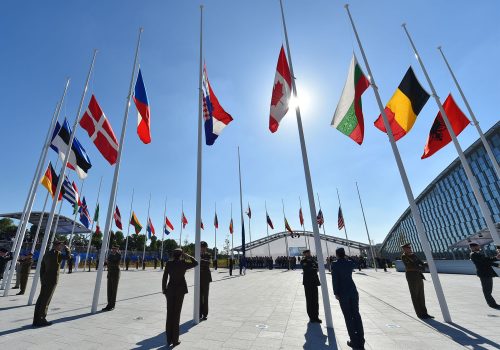Shaping national strategy

Forward Defense‘s “Adding color to the gray zone” project provides in-depth analysis of the competition taking place today below the threshold of conflict. The United States and its allies and partners are increasingly under attack in the “gray zone” of conflict which is often diffuse and hard to attribute, complicating a robust US defense and response. China, Russia, and other actors have developed sophisticated tools and methods of “hybrid warfare” which enable them to achieve destabilizing effects without resulting to armed conflict. Competition in the gray zone is much discussed but not well understood as a comprehensive and holistic issue set, yet long-term security and prosperity arguably hinges on an effective defense against hybrid conflict.
Through thoughtful convenings and thought-provoking content, this Forward Defense project aims to develop an integrated strategic framework for US and allied government and industry to effectively approach hybrid conflict, reaffirming global leadership and mitigating circumstances that could escalate into active armed conflict, until a viable and credible deterrent is reestablished.
Building upon the blueprint for engaging in the gray zone laid out in Seizing the advantage: A vision for the next US National Defense Strategy, this project will set forth recommendations for integrating below-threshold activities into US national strategy.
Defining key terms
Defining and differentiating between key terms like “hybrid conflict” or “hybrid warfare” and the “gray zone” is a critical first step in addressing US and allied challenges and opportunities below the threshold of conflict. While acknowledging the difficulties in reaching consensus on terminology, the project’s Task Force adopts the following working definitions to guide its strategic approach:
What is the gray zone?
The gray zone is the space in which defensive and offensive activity occurs above the level of cooperation and below the threshold of armed conflict. Gray zone operations, activities, and actions (OAA) are often, but not always, clandestine, covert, unofficial, or outside accepted norms of behavior. Gray zone OAA are aimed at undermining the security of the target entity or projecting the national or organizational interest of the initiator but without triggering active armed conflict. While the gray zone can be thought of chronologically (i.e., after peace, before active hostilities), it is referred to spatially to reflect that this is not necessarily the case. In fact, gray zone activity can occur during active armed conflict between actors.
What is hybrid conflict?
Hybrid conflict (also referred to as hybrid warfare) is a subset of statecraft that uses the diplomatic, informational, military, and economic (DIME) levers of national power across the competition continuum, including cooperation, competition (including gray zone OAA), deterrence, and armed conflict for the purposes of achieving national security objective(s) against a state or non-state actor(s).
Commentary and analysis
Engage with our experts as they anticipate trends in hybrid conflict, react to real-time developments, and advance recommendations for US interagency actors and allied governments on topics ranging from cyberattacks and disinformation campaigns to economic coercion and beyond.
Sign up for updates from Forward Defense to hear the latest on the trends, technologies, and military challenges shaping tomorrow.
Meet the Task Force
The Atlantic Council’s Gray Zone Task Force consists of technical and policy experts, former government officials, and private sector executives. These individuals leverage their deep knowledge and extensive experience in impacted and impactful industries to examine adversarial acts in the gray zone and determine how the United States and its allies and partners can leverage hybrid tactics to meet their own strategic ends.
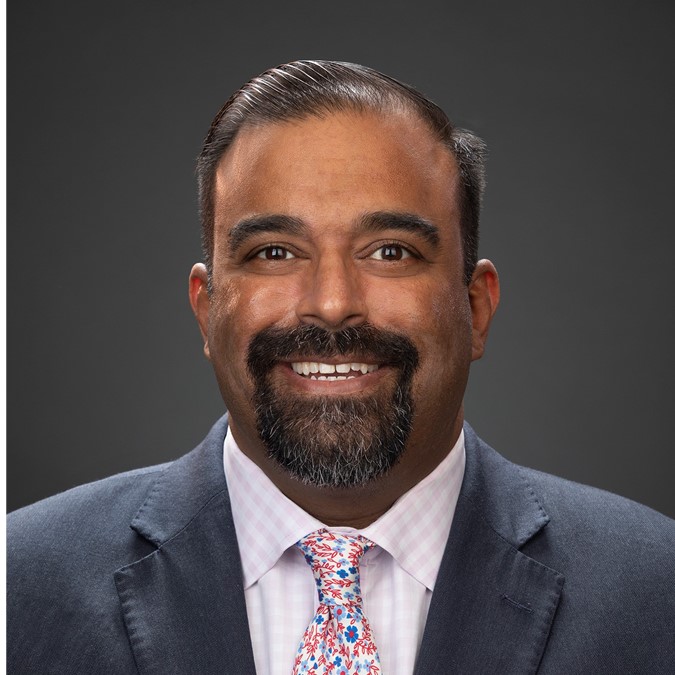
Arun Iyer
Nonresident Senior Fellow, Forward Defense, Scowcroft Center for Strategy and Security, Atlantic Council

Clementine G. Starling
Director, Forward Defense and Fellow, Scowcroft Center for Strategy and Security, Atlantic Council

Robert J. Giesler
Nonresident Senior Fellow, Forward Defense, Scowcroft Center for Strategy and Security, Atlantic Council

Timothy J. “TJ” White
Nonresident Senior Fellow, Forward Defense, Scowcroft Center for Strategy and Security, Atlantic Council

Jennifer A. Counter
Nonresident Senior Fellow, Forward Defense, Scowcroft Center for Strategy and Security, Atlantic Council; Vice President, Orbis Operations

Marc Polymeropoulos
Nonresident Senior Fellow, Forward Defense, Scowcroft Center for Strategy and Security, Atlantic Council
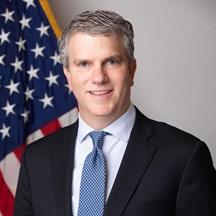
David L. Fogel
Nonresident Senior Fellow, Forward Defense, Scowcroft Center for Strategy and Security, Atlantic Council; Adjunct Professor of Law, Georgetown University
Senior Advisors
The Gray Zone Task Force is advised by a distinguished group of individuals who contribute their experience and unique perspectives to our work.
- MAJ Kyle Atwell, USA, Co-Founder and Director, Irregular Warfare Initiative
- August Cole, Nonresident Senior Fellow, Forward Defense, Scowcroft Center for Strategy and Security, Atlantic Council
- Dr. Sandor Fabian, Nonresident Fellow, Modern War Institute; Former Officer, Hungarian Special Operations Forces
- Annie Froehlich, Nonresident Senior Fellow, GeoEconomics Center, Atlantic Council
- John Ghose, Principal Corporate Counsel, Investigations, Microsoft
- Evanna Hu, Nonresident Senior Fellow, Forward Defense, Scowcroft Center for Strategy and Security, Atlantic Council; CEO and Partner, Omelas
- Alex Plitsas, Nonresident Senior Fellow, Forward Defense, Scowcroft Center for Strategy and Security, Atlantic Council
- Karen Schaefer Burnham, Former Chief of Operations, Directorate of Science and Technology, Central Intelligence Agency
- John Sipher, Nonresident Senior Fellow, Eurasia Center, Atlantic Council
- Brig Gen Robert S. Spalding III, USAF (Ret.), Senior Fellow, Hudson Institute
- ADM Scott Swift, USN (Ret.), Former Commander, Pacific Fleet, United States Navy
- MaryJo Thomas, Former Senior Advisor to the Department of Defense, Federal Bureau of Investigation
- Thomas S. Warrick, Nonresident Senior Fellow, Forward Defense, Scowcroft Center for Strategy and Security, Atlantic Council

Forward Defense, housed within the Scowcroft Center for Strategy and Security, generates ideas and connects stakeholders in the defense ecosystem to promote an enduring military advantage for the United States, its allies, and partners. Our work identifies the defense strategies, capabilities, and resources the United States needs to deter and, if necessary, prevail in future conflict.
